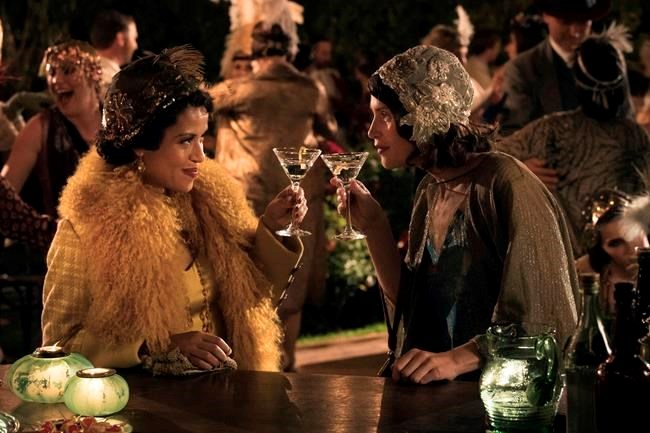“ Summerland ” might look like something you’ve seen before: A scenic story about a schoolchild who must leave London during the war and take up shelter with a reluctant caregiver. But while it is comfortingly familiar in many ways, and a little cliche and overwrought in others, it also has a modern edge and bite to it that keeps it novel enough to sustain interest.
That modernity is credit to writer-director Jessica Swale, a British
The film opens in the 1970s on Alice Lamb (Penelope Wilton), scolding some local children for interrupting her work. Alice has not just aged into a person who is unsympathetic to children, though. “Summerland” quickly cuts back some 30 years to Alice (now Gemma Arterton), in the same house, at the same typewriter and still yelling at children who disturb the quiet. A few scenes later, she even takes some candy away from a local kid. (Technically she buys it when the child and her mother don’t have enough, but the comically heartless act leaves the mother and storekeeper shocked and the child in tears.)
Suffice it to say, it comes as a shock when a young schoolboy, Frank (Lucas Bond), shows up at her steps expecting shelter after being evacuated from London. Alice demands that different accommodations are made for the boy, whose father is fighting and whose mother remains in London. It will come as no surprise that the two start to develop a bond soon enough, over his model planes and her academic work in mythology. Alice, it turns out, is a bit like a child herself, dreamy and naively selfish, making her a perfect companion to Frank. The viciousness displayed at the beginning dissipates pretty quickly, which might come across as inauthentic to some, but the story does start to reveal why children annoy her so.
“Summerland” occasionally (and somewhat clunkily) cuts back a few years before the war, to show that Alice wasn’t always a loner. In fact, she had a very picturesque romance with a woman, Vera (Gugu Mbatha-Raw), who breaks Alice’s heart when she leaves to have children. The flashbacks allow the production design and hair and makeup team to dabble in some jollier looks than wartime invites, and Arterton and Mbatha-Raw look especially fabulous in their flapper wares. The director’s affection for the pair is clear: Both actors starred in the title role in Swale’s play “Nell Gwynn.” Here, Alice naturally gets more to do — it’s her story — but you do come away wishing for more Mbatha-Raw as well.
That’s all very nice, but what’s it got to do with Alice in the war and in the 70s? Well, fair warning, the threads do come together and far too neatly. But the charms of “Summerland” aren’t in its plot. They’re in the sentiment, which is too good-hearted to be cynical about, and the characters. Tom Courtenay gets a lovely role as the school’s headmaster and the tiny Dixie Egerickx steals scenes as Frank’s spirited friend Edie.
“Summerland” even felt a little resonant in the current moment. Quarantine doesn’t compare to wartime sacrifices in the least, of course, and yet there is something undeniably moving about watching a hopeful and kind film like “Summerland” right now.
“Summerland,” an IFC Films release, has not been rated by the Motion Picture Association of America. Running time: 100 minutes. Three stars out of four.
___
Follow AP Film Writer Lindsey Bahr on Twitter: www.twitter.com/ldbahr
Lindsey Bahr, The Associated Press


